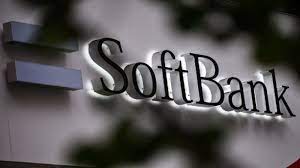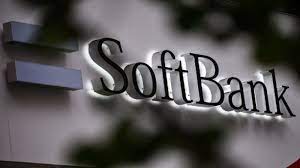
Amidst a rebound in the valuation of technology companies, SoftBank reported its largest gain in over three years at its flagship tech investment arm, the Vision Fund, in the December quarter.
This is SoftBank's performance during the December quarter relative to LSEG estimates:
Net sales: $11.9 billion, or 1.77 trillion Japanese yen, as opposed to the estimated 1.8 trillion Japanese yen.
Net income: 950 billion Japanese yen as opposed to the anticipated 196.5 billion yen.
After suffering unprecedented losses in the previous fiscal year, the Vision Fund continued to recover with a gain of 600.7 billion Japanese yen on investment. The Vision Fund reported a gain of 3.59 trillion yen in the March 2021 quarter, which is the greatest gain since then.
After four consecutive losses, SoftBank's net income represented its first quarterly profit as well.
The fiscal year that concluded in March of last year was difficult for SoftBank's flagship tech investment arm, which saw a record loss of almost $32 billion due to a decline in tech stock prices and the withdrawal of some of the company's bets in China.
Over the past three quarters, Vision Fund has reported gains.
Additionally, SoftBank reported seeing increased values from two significant companies that the Vision Fund invests in: Didi, a Chinese ride-hailing service, and ByteDance, the company that owns TikTok.
The Vision Fund reported a gain in investments for the first time in five quarters in June 2023, indicating early indications of new growth that aligned with price recoveries of technology equities.
SoftBank founder Masayoshi Son declared that the company would enter "defence" mode in 2022, reducing its rate of investment and taking a more measured approach. Son announced a move into "offence" mode in June, expressing his enthusiasm for the possibilities presented by AI. Through its investments in businesses like China's SenseTime, Vision Fund is exposed to AI.
In the December quarter, SoftBank reported that it had realised a $5.5 billion gain on its investment as a result of selling a portion of its majority-owned chip design company Arm to a wholly-owned subsidiary of the Japanese company.
The previous year, Arm went public in the US. The British company was valued at about $50 billion at the time of its first public offering (IPO) and was purchased by SoftBank in 2016 for about $32 billion.
SoftBank's Tokyo-listed shares closed 11% higher ahead of the results report on Wednesday after Arm released its earnings and provided a financial forecast that exceeded market expectations.
Son of SoftBank has frequently emphasised Arm's potential to be a significant participant in artificial intelligence; Yoshimitsu Goto, the chief financial officer of the Japanese company, has expressed a similar view.
“Arm is the biggest contributor to the global AI evolution,” Goto said during an earnings presentation on Thursday.
When the lock-up, which prevents the corporation from selling Arm shares after the IPO, expires in March, investors will be closely observing what SoftBank does. Atul Goyal, an equities analyst at Jefferies, stated in a note on Thursday that SoftBank may use the proceeds from the sale of its Arm stock to finance a repurchase of its own shares when the lock-up expires.
SoftBank has "gone through shift from Alibaba to AI-centric portfolio," according to Goto.
Son made an early 2000 wager on Alibaba, the Chinese e-commerce behemoth, which paid off handsomely over the next few years, propelling SoftBank to become one of Japan's largest corporations.
Lately, SoftBank has started reducing its ownership of Alibaba. Alibaba had about 0% of SoftBank's assets at the end of the December quarter, according to Goto, a decrease from 50% at the end of December 2019.
In the same time frame, Arm's share of SoftBank's assets increased from 9% to 32%.
Goto added that SoftBank has lessened its exposure to Chinese investments.
“When we had a lot of Alibaba [shares] we were China-centric, but now we have gone through the shift,” Goto said.
(Source:www.moneycontrol.com)
This is SoftBank's performance during the December quarter relative to LSEG estimates:
Net sales: $11.9 billion, or 1.77 trillion Japanese yen, as opposed to the estimated 1.8 trillion Japanese yen.
Net income: 950 billion Japanese yen as opposed to the anticipated 196.5 billion yen.
After suffering unprecedented losses in the previous fiscal year, the Vision Fund continued to recover with a gain of 600.7 billion Japanese yen on investment. The Vision Fund reported a gain of 3.59 trillion yen in the March 2021 quarter, which is the greatest gain since then.
After four consecutive losses, SoftBank's net income represented its first quarterly profit as well.
The fiscal year that concluded in March of last year was difficult for SoftBank's flagship tech investment arm, which saw a record loss of almost $32 billion due to a decline in tech stock prices and the withdrawal of some of the company's bets in China.
Over the past three quarters, Vision Fund has reported gains.
Additionally, SoftBank reported seeing increased values from two significant companies that the Vision Fund invests in: Didi, a Chinese ride-hailing service, and ByteDance, the company that owns TikTok.
The Vision Fund reported a gain in investments for the first time in five quarters in June 2023, indicating early indications of new growth that aligned with price recoveries of technology equities.
SoftBank founder Masayoshi Son declared that the company would enter "defence" mode in 2022, reducing its rate of investment and taking a more measured approach. Son announced a move into "offence" mode in June, expressing his enthusiasm for the possibilities presented by AI. Through its investments in businesses like China's SenseTime, Vision Fund is exposed to AI.
In the December quarter, SoftBank reported that it had realised a $5.5 billion gain on its investment as a result of selling a portion of its majority-owned chip design company Arm to a wholly-owned subsidiary of the Japanese company.
The previous year, Arm went public in the US. The British company was valued at about $50 billion at the time of its first public offering (IPO) and was purchased by SoftBank in 2016 for about $32 billion.
SoftBank's Tokyo-listed shares closed 11% higher ahead of the results report on Wednesday after Arm released its earnings and provided a financial forecast that exceeded market expectations.
Son of SoftBank has frequently emphasised Arm's potential to be a significant participant in artificial intelligence; Yoshimitsu Goto, the chief financial officer of the Japanese company, has expressed a similar view.
“Arm is the biggest contributor to the global AI evolution,” Goto said during an earnings presentation on Thursday.
When the lock-up, which prevents the corporation from selling Arm shares after the IPO, expires in March, investors will be closely observing what SoftBank does. Atul Goyal, an equities analyst at Jefferies, stated in a note on Thursday that SoftBank may use the proceeds from the sale of its Arm stock to finance a repurchase of its own shares when the lock-up expires.
SoftBank has "gone through shift from Alibaba to AI-centric portfolio," according to Goto.
Son made an early 2000 wager on Alibaba, the Chinese e-commerce behemoth, which paid off handsomely over the next few years, propelling SoftBank to become one of Japan's largest corporations.
Lately, SoftBank has started reducing its ownership of Alibaba. Alibaba had about 0% of SoftBank's assets at the end of the December quarter, according to Goto, a decrease from 50% at the end of December 2019.
In the same time frame, Arm's share of SoftBank's assets increased from 9% to 32%.
Goto added that SoftBank has lessened its exposure to Chinese investments.
“When we had a lot of Alibaba [shares] we were China-centric, but now we have gone through the shift,” Goto said.
(Source:www.moneycontrol.com)














